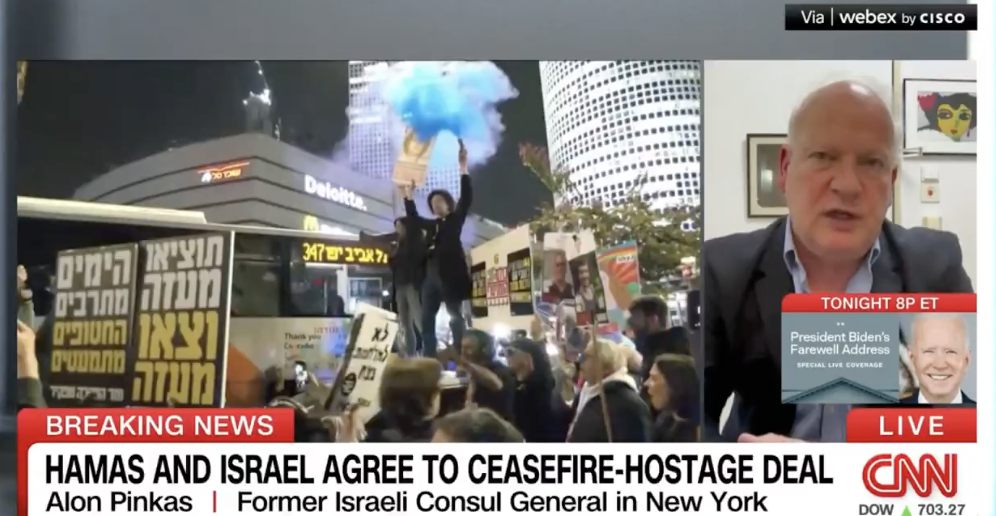Politics
Former Israeli Diplomat Credits Trump For Israel-Hamas Ceasefire: ‘Game-Changer’

Alon Pinkas, a former Israeli diplomat who served as Consul General of Israel in New York City, told CNN that Wednesday’s ceasefire agreement between Israel and Hamas can largely be credited to President-elect Donald Trump.
Under the three-phase peace plan, Hamas has reportedly pledged to release dozens of prisoners who were abducted from Israel during the October 7 attacks. Israel will also agree to release hundreds of Palestinian prisoners, while thousands of Palestinian civilians who have been displaced by the fighting will be allowed to return to their homes, according to a report from the Associated Press.
If finalized, the deal would also flood the conflict zone with badly needed humanitarian aid after 15 months of brutal conflict, mediators have said. The Israeli government is optimistic that the deal will go through, though officials have cautioned that the agreement’s final framework is still being discussed.

More than 60 percent of buildings in the Gaza Strip have been destroyed or damaged in the conflict
Photo: Fars News Agency

More than 200 Israeli civilians were abducted by Hamas during the October 7 terrorist attacks
Photo: Oleg Yunakov
Sheikh Mohammed bin Abdulrahman Al Thani, the Prime Minister of Qatar, announced that the agreement will go into effect on Sunday, adding that the success of the ceasefire will depend on Israel and Hamas “acting in good faith in order to ensure that this agreement does not collapse.”
President Joe Biden attempted to take credit for the deal while speaking to reporters from the White House. While Biden did praise the incoming Trump Administration for pledging to honor the terms of the agreement, the president got annoyed when a reporter asked whether Trump should be credited for getting the deal done. “Is that a joke?” an irate Biden replied.
Pinkas disagreed with the president’s assertion while speaking with CNN’s Jake Tapper, referring to Trump as a “game-changer” in the months-long negotiations. “The deal could have been made or struck in March, again in May, and it was rehashed or rekindled in in July and in August, and Prime Minister Netanyahu refused,” he said. “I mean Hamas wasn’t very helpful but uh, let’s be honest, it was Prime Minister Netanyahu ultimately that rejected the deal.”
The former Israeli diplomat went on to accuse Netanyahu of attempting to prolong the conflict for “political reasons,” adding that he also stated that he wanted to wait for the outcome of the U.S. presidential election before deciding how to proceed. “Once President Trump was elected and became President-elect, Netanyahu set a date, the 20th of January, inauguration day,” Pinkas added. “And he extended the war for no apparent reason, for no utility, for no tangible or attainable goals for months. And so if you’re asking what the game changer was, what the reason that brought him to say yes now, as opposed to the many resisting no’s in previous months, it’s that he’s afraid of the unpredictability and transactionality of Trump,” Pinkas added.
He went on to argue that Netanyahu likely views Trump’s “America first” policy goals as a reason for doing the deal now, as more favorable terms may prove difficult to attain. “‘I better get on his good side and I should do this now,'” Pinkas speculated as to the Israeli prime minister’s thinking.

